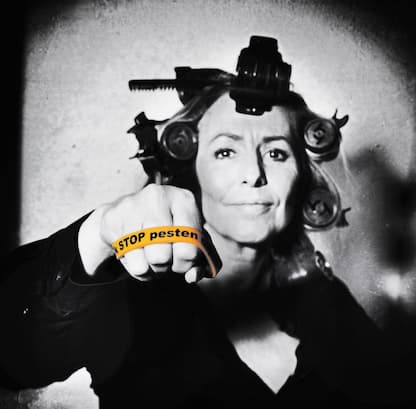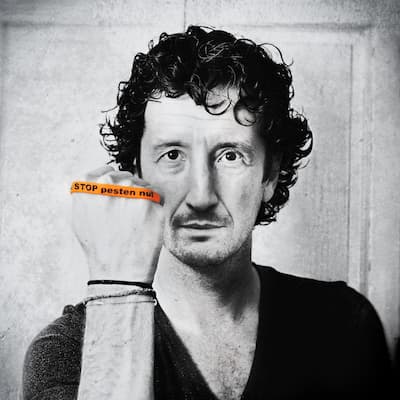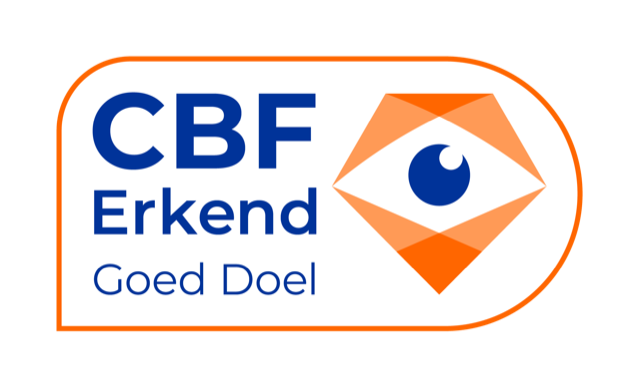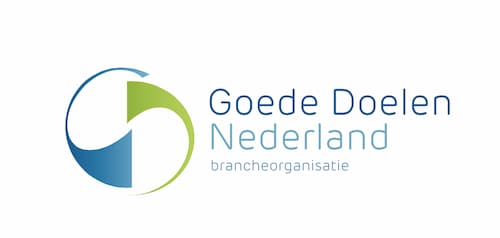Verschillende vormen van sociale media worden ervan verdacht gevaarlijk te zijn voor de mentale gezondheid van gebruikers. Is Instagram een uitzondering of juist een opmerkelijke boosdoener?
Met schaamte en tegenzin moet ik bekennen: Instagram is mijn favoriete app aller tijden. Ik spendeer gerust uren met scrollen langs een myriade van GIFs, memes, slapende puppies, food-porn en foto’s van reizen. Net als haar zusjes in het pantheon van de populaire sociale media, belichaamt Instagram de hedendaagse cultuur van de verslaving van het delen in de “aandachts-economie”. Sinds het ontstaan in 2010 is de populariteit van de foto- en video-applicatie omhooggeschoten naar meer dan 700 miljoen gebruikers en 32% van de Nederlandse populatie valt onder actieve gebruikers. Hoewel het grootste percentage van volwassenen YouTube- en Facebookgebruikers zijn, wordt Instagram vooral veel gebruikt door jongvolwassenen. Het concept van vastleggen en delen van herinneringen lijkt onschuldig, maar wat weten we eigenlijk van het effect op onze mentale gezondheid?
Sommigen stellen dat Instagram kan helpen bij het ontwikkelen van sociale vaardigheden door het creëren van gedrag dat op anderen gericht is. De app heeft de kunst van de fotografie toegankelijker gemaakt voor leken en heeft het mogelijk gemaakt fotografie terug te eisen als een bron van empowerment in zelfexpressie, identiteit en wellicht zelfs lichaamspositiviteit.
Desondanks wijzen studies erop dat Instagram narcistische trekken aanmoedigt en waarschuwen deze studie ons dat millennials die veel sociale media sites gebruiken meer symptomen van depressie en angst vertonen dan leeftijdgenoten die niet zoveel online zijn. Een recente vragenlijst uitgevoerd door de Royal Society onder 1500 tieners en volwassenen (14-24 jaar oud) vond dat Instagram juist het ergste sociale media netwerk is voor mentale gezondheid – geassocieerd met hoge niveaus van angst, depressie, pesten en het bang zijn er niet bij te horen. Daarnaast warden het type en de stijl van op Instagram gedeelde foto’s gezien als voorspellend voor depressie, wat voor een mogelijke kans op vroege screening en detectie van een psychische stoornis kan zorgen.
Negatieve bewijzen over de effecten van hevig sociale media gebruik nemen toe terwijl tegelijk de maatschappij steeds bewuster wordt van mentale gezondheid. Toekomstige oplossingen zouden dus gericht moeten zijn op het bewaken en verbeteren van ons welzijn. Onderzoekers bevelen aan dat veilig gebruik van sociale media onderdeel moet zijn van de opleiding en dat professionals die met jongeren werken getraind worden in digitale- en sociale media. Echter, meer onderzoek naar de psychologische impact van sociale-media gebruik is nodig en welke beschermende strategieën het beste zijn voor jongvolwassenen en de rest van de populatie.
Sociale media is niet duidelijk bedoeld als iets blijvends – en dat hoeft niet iets slechts te zijn – maar wat we tot dusver ontdekt hebben is dat er behoefte is aan manieren om schade te minimaliseren. We moeten de technologische en sociale shifts die Instagram en andere media ons brengen niet alleen ondersteunen, maar we moeten ook er ook onderdeel van zijn, door het promoten en versterken van de positieve aspecten van sociale-media gebruik, terwijl we onszelf tegelijkertijd beschermen tegen schade.
Highlights
- Emerging adults engage in two types of like-seeking behavior on Instagram, normative and deceptive.
- Narcissism predicts deceptive like-seeking via motives to enhance popularity and appear creative.
- Weak peer belonging predicts more deceptive like-seeking and less normative like-seeking.
Abstract
We examined the extent to which emerging adults engage in different behaviors on Instagram, a popular social networking site, to gain attention and validation from others via “likes.” We also examined individual differences in the frequency of like-seeking behavior and motives for Instagram use as mediators of these relationships. Participants (N = 198 and 265 (replication study)) were recruited via an online crowdsourcing portal to complete a survey. Results demonstrated that, as predicted, participants engaged in an assortment of different like-seeking behaviors. Further, a two-factor solution emerged, with like-seeking behavior separated by whether they were normative (i.e., common or accepted, e.g., using filters or hashtags) or deceptive (e.g., buying likes or changing one’s appearance in photos using software). Deceptive like-seeking was predicted by stronger narcissism and a weaker sense of peer belonging, whereas normative like-seeking was predicted by stronger narcissism and a stronger sense of peer belonging. Further, consistent with hypotheses, significant mediators of the relation between narcissism and deceptive like-seeking included motives to use Instagram to increase popularity and showcase creativity. Results help to identify young people who are more susceptible to engaging in deceptive, potentially harmful acts to gain attention and validation on Instagram.
#Status of Mind
RSPH and the Young Health Movement (YHM) have published a new report, #StatusOfMind, examining the positive and negative effects of social media on young people’s health, including a league table of social media platforms according to their impact on young people’s mental health.
YouTube tops the table as the most positive, with Instagram and Snapchat coming out as the most detrimental to young people’s mental health and wellbeing. RSPH and YHM are now calling for action from government and social media companies to help promote the positive aspects of social media for young people, whilst mitigating the potential negatives.
The report’s recommendations include:
- Introduction of a pop-up heavy usage warning on social media – seven in 10 (71%) young people surveyed support this recommendation.
- Social media platforms to identify users who could be suffering from mental health problems by their posts, and discretely signpost to support – four in five (80%) young people support.
- Social media platforms to highlight when photos of people have been digitally manipulated – more than two-thirds (68%) of young people support this recommendation.
Survey Results
In early 2017 (13 February to 8 May), RSPH/YHM conducted a survey of almost 1,500 young people (aged 14-24) from across the UK. The survey asked them to score how each of the social media platforms they use impacts upon 14 health and wellbeing-related issues which were identified by experts as the most significant.
The 14 Health and Wellbeing-related issues were:
- Awareness and understanding of other people's health experiences
- Access to expert health information you know you can trust
- Emotional Support - empathy and compassion from family and friends
- Anxiety - feelings of worry, nervousness or unease
- Depression - feeling extremely low and unhappy
- Loneliness - feelings of being all on your own
- Sleep - quality and amount of sleep
- Self-expression - the expression of your feelings, thoughts or ideas
- Self-identity - ability to define who you are
- Body Image - how you feel about how you look
- Real World Relationships - maintaining relationships with other people
- Community Building - feeling part of a community of like-minded people
- Bullying - threatening or abusive behaviour towards you
- FOMO (Fear of Missing Out) – feeling you need to stay connected because you are worried things could be happening without you.
Based on the ratings young people gave to each platform for each of the health and wellbeing-related issues, the five most popular platforms were given a net average score which were used to establish the league table rankings:
- YouTube (most positive)
- Snapchat
- Instagram (most negative)
Our Comments
Shirley Cramer CBE, Chief Executive, RSPH, said: “Social media has been described as more addictive than cigarettes and alcohol, and is now so entrenched in the lives of young people that it is no longer possible to ignore it when talking about young people’s mental health issues. Through our Young Health Movement, young people have told us that social media has had both a positive and negative impact on their mental health. It’s interesting to see Instagram and Snapchat ranking as the worst for mental health and wellbeing – both platforms are very image-focused and it appears they may be driving feelings of inadequacy and anxiety in young people.
“As the evidence grows that there may be potential harms from heavy use of social media, and as we upgrade the status of mental health within society, it is important that we have checks and balances in place to make social media less of a wild west when it comes to young people’s mental health and wellbeing. We want to promote and encourage the many positive aspects of networking platforms and avoid a situation that leads to social media psychosis which may blight the lives of our young people.”
Dr Becky Inkster, Honorary Research Fellow, University of Cambridge, said: “For young people, using social media and digital technologies as a tool to help with mental health make sense for many reasons. Social media is a part of their daily lives and so care could be delivered in a lifestyle-integrated, self-managed approach. This holistic perspective could integrate personal interests and activities. It might help improve psychoeducation, increase self-awareness of mental health and act as a preventative measure. Young people sometimes feel more comfortable talking about personal issues online.
“We also have a unique opportunity to communicate with young people on their terms and in creative ways. As health professionals we must make every attempt to understand modern youth culture expressions, lexicons, and terms to better connect with their thoughts and feelings.”
Laci Green, professional health YouTuber (1.5 million subscribers), said: “Social media has dramatically shifted how we socialize, communicate, and form relationships with each other. Its impact cannot be understated. As we navigate these new digital spaces that have so much to offer, we must be having a conversation about how it can affect our mental health. Because platforms like Instagram and Facebook present highly curated versions of the people we know and the world around us, it is easy for our perspective of reality to become distorted.
“Socializing from behind a screen can also be uniquely isolating, obscuring mental health challenges even more than usual. As the first generation of social media users become adults, it is important that we lay the groundwork now to minimize potential harm and shape a digital future that is healthy and thriving.”
Tip van de redactie
Heb je haast? Navigeer dan snel naar:
► Scholen & Professionals Kenniscentrum Pesten in het Onderwijs
- Of navigeer direct naar de informatie per functionaris: Schooldirectie & MT / Anti-pest coördinator / Leerkracht / Mentor / Ouderraad & MR
- Leerlingen & opvoeders: Kinderen & Jongeren (Leerlingen) / Ouders & Opvoeders
► Sportverenigingen Kenniscentrum Pesten in de Sport
- Of navigeer direct naar de informatie per functionaris: Bestuurders / Coaches, Trainers & Begeleiders / (Top)Sporters & Scheidsrechters
- Jonge leden & ouders Kinderen & Jongeren (Leerlingen) / Ouders & Opvoeders
► Werkgevers Kenniscentrum Pesten op het Werk
- Of navigeer direct naar de informatie per functionaris: Directie en bestuurders / HRM / MT en Leidinggevenden / Medewerkers / Ondernemersraden / Vertrouwenspersonen
► Ouderen Kenniscentrum Pesten in Woonzorgcentra

Breng snel een bezoekje aan ...
► Kenniscentrum (Klassiek) Pesten
► Kenniscentrum Online pesten (cyberpesten)
► Kennisbank & Downloadcentrum o.a. Beleid & Factsheets / Handleidingen / Lesmaterialen / Posters / Wetenschappelijke Onderzoeken
► Ik word gepest, wat kan ik doen
Stichting Stop Pesten Nu is het enige Erkende Goede Doel tegen Pesten in Nederland!







